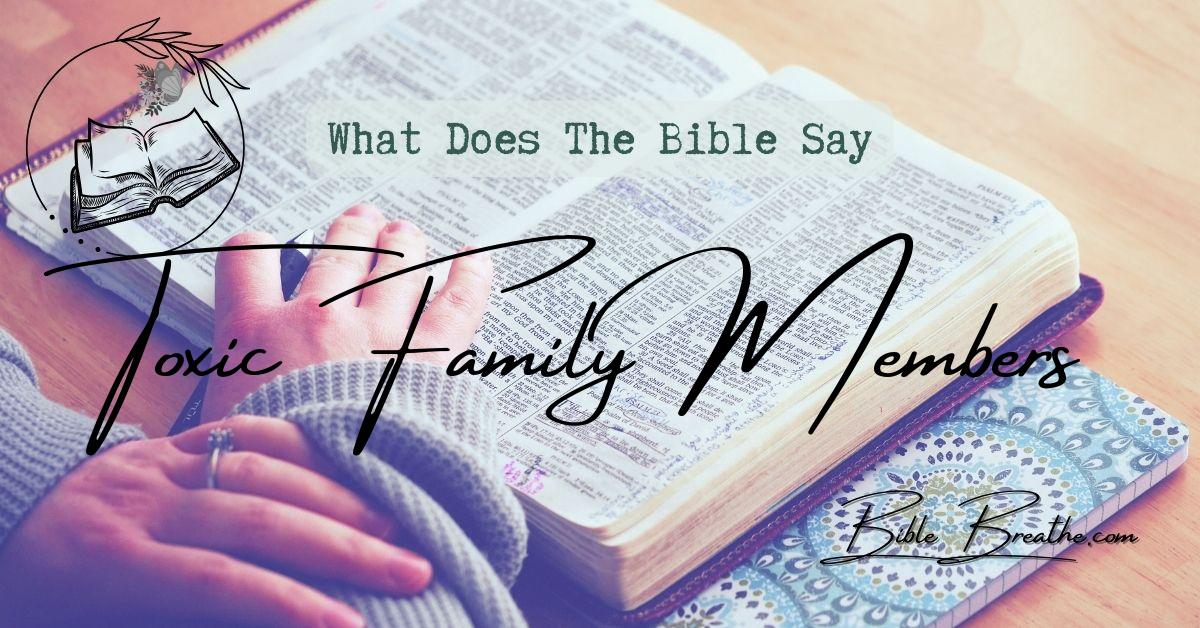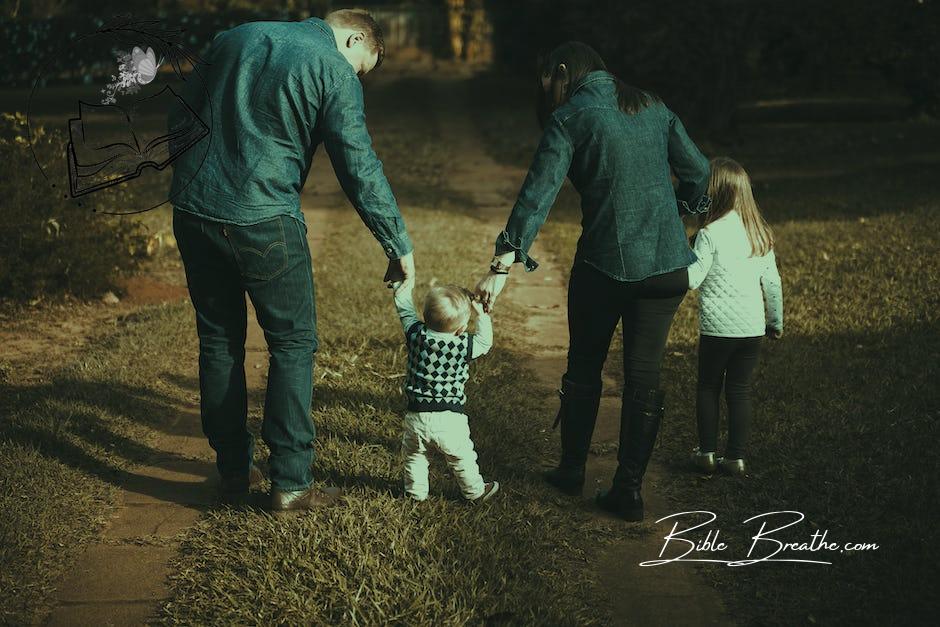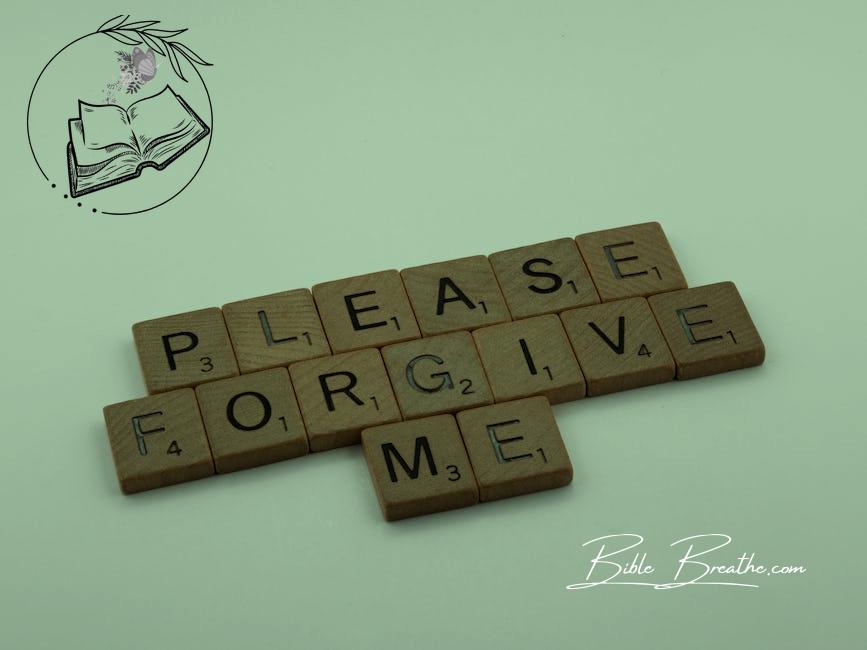What’s the Bible’s take on dealing with toxic family members, fam?
It’s a question that hits home for so many of us, right?
Family’s supposed to be like a warm hug, but sometimes, it’s more like a thorny path.
Now, you might think the Bible’s just a dusty old book, but trust me, it’s got the gems we need.
Picture it as your GPS through the messy terrain of family dynamics.
It’s got guidance on boundaries, forgiveness, and healing, like a treasure map to smoother waters.
Love and respect?
That’s your compass, my friend.
In there, we find stories of families gone wrong, and still, there’s redemption and restoration.
It’s all about finding the path to growth and spiritual strength, wrapped up in a loving church community.
So, let’s dive in, fam.
We’ll uncover the Bible’s wisdom to mend those broken ties and find our way to healthier, happier family connections.
🙏🏽
Key Takeaways
- When dealing with toxic family members, setting boundaries is crucial for your emotional and mental well-being. Seek support from friends, therapists, or support groups to help you establish and maintain these boundaries effectively.
- Forgiveness and reconciliation can be powerful tools in healing family relationships. While it may not always be possible or advisable, when appropriate, they can lead to personal growth and family harmony.
- Faith and prayer can provide solace and guidance when navigating toxic family dynamics. Many individuals find strength and wisdom through their religious beliefs, helping them cope with the challenges presented by difficult family members.
- Remember that every situation is unique, and there is no one-size-fits-all solution when it comes to handling toxic family relationships. It’s essential to assess your own well-being and make decisions that are in your best interest.
- In some cases, distancing yourself from toxic family members may be necessary for your mental and emotional health. Don’t feel guilty about prioritizing your well-being, as self-care is vital on your journey to healing and peace.
Dealing with toxic family members is a complex and often painful experience.
These key takeaways emphasize the importance of self-care, forgiveness, faith, and seeking support as you navigate this challenging terrain.
Remember that you are not alone in facing these difficulties, and there are resources and strategies available to help you on your journey toward healing and well-being.
Navigating Stormy Waters: Dealing with Toxic Family Dynamics
Photo modified by BibleBreathe.com. Original photo by Vidal Balielo Jr. on Pexels
Life is like a wild and unpredictable ocean, filled with waves of joy, sorrow, love, and yes, even pain.
When you’re faced with toxic family dynamics, it’s like trying to navigate a tempestuous sea.
But fear not, my friends, for the Bible is our compass, guiding us through these treacherous waters.
Divine Wisdom for Troubled Waters
Within the sacred pages of the Bible, we discover stories of human triumphs and trials, including the challenge of dealing with toxic family members.
The scriptures offer us principles and teachings that illuminate the path to handling these difficult relationships.
As the wise Proverbs 15:1 (KJV) tells us:
“A soft answer turneth away wrath: but grievous words stir up anger.”
These timeless words remind us of the incredible power of our responses.
They highlight the importance of carefully choosing our words and actions when faced with toxicity.
Love, Grace, and Wisdom: Your Anchors in the Storm
When you’re in the midst of toxic family dynamics, it’s essential to approach the situation with a heart grounded in love, grace, and wisdom.
The Bible urges us to embody these virtues, even in the face of adversity.
Colossians 3:13 (KJV) encourages us with these words:
“Forbearing one another, and forgiving one another, if any man have a quarrel against any: even as Christ forgave you, so also do ye.”
Forgiveness and understanding are the bridges that lead to healing, crucial tools for navigating the turbulent waters of family discord.
God’s Restorative Power: Healing Broken Bonds
In the midst of the chaos of toxic relationships, the Bible offers us hope and assurance of God’s redemptive power.
Regardless of how fractured or strained a family bond may be, the grace of God has the remarkable ability to restore and mend.
Psalm 34:18 (KJV) serves as a comforting reminder:
“The Lord is nigh unto them that are of a broken heart; and saveth such as be of a contrite spirit.”
God’s unwavering presence and transformative love provide solace, paving the way for reconciliation and the restoration of fractured family relationships.
As you journey through life’s tempests, take solace in the teachings of the Bible.
Let its wisdom grant you the strength to navigate the intricate dynamics of your family with grace, love, and an unshakable belief in the power of redemption.
Family Ties: Love, Boundaries, and Toxicity in Scripture
Photo modified by BibleBreathe.com. Original photo by Daria Obymaha on Pexels
Ah, family – our greatest source of joy and sometimes, well, let’s say, challenges.
We’ve all been there, dealing with those tricky dynamics within our own kin.
But don’t worry, my friends, because the Bible is our compass, providing us with the wisdom to navigate these sometimes turbulent waters.
Love and Respect: The Cornerstones of Kinship
In the grand story of the Good Book, love and respect are the bedrock of our family bonds.
Now, when we talk about love, we’re not just talking about fuzzy feelings.
It’s more like tending a garden.
You water it, give it sunlight, and watch it flourish.
Love in a family is that water and sunlight, nurturing our connections and helping them grow.
Above all, love each other deeply, because love covers over a multitude of sins.” – 1 Peter 4:8 (KJV)
Respect, on the other hand, is like the sturdy roots of a tree, keeping the family firmly grounded.
It’s about valuing each other’s thoughts, feelings, and uniqueness.
When respect takes root within a family, it creates an atmosphere of understanding and acceptance.
Biblical Insights: Love and Respect in Action
Our Bible is full of teachings that highlight the importance of love and respect within the family.
Take, for example, the commandment to honor our parents – that’s a clear demonstration of respect.
“Honor thy father and thy mother: that thy days may be long upon the land which the Lord thy God giveth thee.” – Exodus 20:12 (KJV)
Now, when it comes to love, look no further than the love Christ showed for all of us.
His sacrificial love teaches us how to love one another, even when things get tough.
Greater love hath no man than this, that a man lay down his life for his friends.” – John 15:13 (KJV)
Dealing with Toxicity: Boundaries and Redemption
But let’s be real, folks – families aren’t always sunshine and rainbows.
Toxic relationships can cloud the atmosphere, causing hurt and turmoil.
It’s vital to recognize and address toxicity.
Sometimes, that means setting healthy boundaries, just like putting a fence around a garden to protect it from harmful influences.
In those tough times, lean on your church community for support and guidance.
Seek wisdom from your spiritual leaders and find solace in prayer.
Remember, the Bible not only acknowledges our struggles but offers a roadmap to healing and personal growth, promoting forgiveness, reconciliation, and redemption.
For I know the plans I have for you, declares the Lord, plans for welfare and not for evil, to give you a future and a hope.” – Jeremiah 29:11 (KJV)
Let these timeless principles be your guide in nurturing healthy family relationships, even when faced with adversity.
Unraveling Toxic Family Patterns: Insights from the Scriptures
Photo modified by BibleBreathe.com. Original photo by SHVETS production on Pexels
In the intricate tapestry of family life, you’ll find threads that radiate warmth and joy, but there are others that carry a darker shade.
To truly nurture a healthier and more harmonious family life, it’s essential to understand and identify toxic family patterns.
Traits and Behaviors: Reading Between the Lines
While the Bible may not use the word “toxic,” it certainly provides insights into behaviors and traits that align with our modern understanding of toxicity.
In Proverbs 22:24-25 (KJV), there’s a stern warning about getting too close to those who harbor anger and strife:
“Make no friendship with an angry man; and with a furious man thou shalt not go: Lest thou learn his ways, and get a snare to thy soul.”
These verses emphasize the profound influence negative and aggressive individuals can exert on our lives and spirits.
Toxic family members often exhibit traits such as chronic negativity, manipulation, a lack of empathy, and a consistent pattern of hurtful behavior.
While the Bible may not spell it out explicitly, it does encourage us to distance ourselves from destructive influences while embracing virtues like love, patience, and understanding.
The Ripple Effect of Toxic Dynamics
Toxic dynamics within a family can cast a long shadow, affecting everyone involved.
They can stir up emotional storms, erode trust, and stunt the growth of individuals within the family unit.
Proverbs 14:1 (KJV) underscores the importance of a nurturing environment:
“Every wise woman buildeth her house: but the foolish plucketh it down with her hands.”
This verse highlights the incredible power of a nurturing and positive influence within a family, as well as the potential harm caused by destructive forces.
Toxic family patterns can obstruct emotional well-being, impede spiritual growth, and chip away at trust and faith within the family.
Recognizing these patterns is the crucial first step toward establishing healthy boundaries, seeking healing, and fostering an environment that nurtures growth and restoration.
Understanding these toxic threads in the tapestry of your family is the first step towards breaking free from their influence and weaving a future that’s marked by a healthier, more fulfilling family life.
Safeguarding Your Heart: Biblical Insights on Boundaries with Toxic Family Members
Photo modified by BibleBreathe.com. Original photo by cottonbro studio on Pexels
Let’s talk about something crucial, my friends: setting boundaries with toxic family members.
It’s like building a fortress around your heart, protecting your innermost self.
The Bible has some profound wisdom on why and how we should establish these boundaries, especially when dealing with toxic family dynamics.
The Biblical Blueprint for Boundaries
The Bible reminds us of our responsibility to care for our bodies, minds, and emotions.
It teaches us that our bodies are temples of the Holy Spirit, and we must honor and protect them.
Or do you not know that your body is a temple of the Holy Spirit within you, whom you have from God? You are not your own, for you were bought with a price. So glorify God in your body.” – 1 Corinthians 6:19-20 (KJV)
This stewardship extends to our emotional and mental well-being.
We’re encouraged to be discerning and guard our hearts from harmful influences.
Practical Guidance: Constructing Boundaries
Setting boundaries with toxic family members isn’t selfish; it’s an act of self-preservation.
It means clearly stating what behaviors are acceptable and what are not, all while balancing love and respect for yourself and others.
1. Identify Harmful Behaviors
First, recognize the patterns of toxicity in the relationship.
It could be manipulation, constant criticism, or disrespect.
Understanding these is key.
2. Communicate Clearly
Express your feelings and concerns calmly but firmly.
Use ‘I’ statements to explain how specific actions impact your emotions.
3. Enforce Consequences
Make it clear that there are consequences for toxic behavior.
This may involve limiting contact or taking a step back from the relationship.
4. Seek Support
Don’t go it alone.
Lean on your church community, friends, or a support group.
Their guidance and encouragement can strengthen your resolve to maintain healthy boundaries.
Embracing Healing and Restoration
Remember, setting boundaries doesn’t mean cutting ties; it’s about creating a healthier dynamic.
It’s about nurturing an environment where both parties can grow and flourish.
“And after you have suffered a little while, the God of all grace, who has called you to his eternal glory in Christ, will himself restore, confirm, strengthen, and establish you.” – 1 Peter 5:10 (KJV)
May you find the courage and wisdom to set and maintain these boundaries, fostering healing, growth, and, ultimately, the restoration of your relationships.
Embracing Forgiveness and Pursuing Reconciliation: Insights from Scripture
Photo modified by BibleBreathe.com. Original photo by Brett Jordan on Pexels
Forgiveness is like a precious gem in the crown of many faiths, and the Bible, as our sacred guide, illuminates the power of forgiveness and the path to reconciliation, even in the context of challenging family relationships.
The Divine Call to Forgive
The Bible resounds with a powerful call to forgiveness, highlighting its transformative nature.
Colossians 3:13 (KJV) encourages us to embrace this virtue:
“Forbearing one another, and forgiving one another, if any man have a quarrel against any: even as Christ forgave you, so also do ye.”
In the face of toxicity, forgiveness shines like a beacon, liberating our spirits from the heavy burden of resentment and bitterness.
It’s a way to release the grip of the past, creating space for healing and personal growth.
Distinguishing Forgiveness from Reconciliation
It’s vital to distinguish forgiveness from reconciliation, especially in the context of toxic family relationships.
Forgiveness is a personal choice, an inner transformation that sets us free from the chains of anger and pain.
It doesn’t always require a complete restoration of the relationship, especially if it continues to be harmful or toxic.
Reconciliation, on the other hand, involves rebuilding the relationship, often demanding mutual understanding, trust, and a commitment to change.
At times, reconciliation might not be feasible or healthy, and setting boundaries becomes a necessary act of self-preservation.
Recognizing this distinction is essential.
Proverbs 4:23 (KJV) offers sage advice:
“Keep thy heart with all diligence; for out of it are the issues of life.”
We are called to protect our hearts and minds, making choices that nurture our emotional well-being and spiritual growth.
In the intricate dance of toxic family relationships, we are encouraged to extend forgiveness, finding peace within our hearts, and, when circumstances permit, seeking reconciliation with the hope of restoration.
But above all, we are reminded to prioritize our well-being and growth, guided by the principles of love, respect, and wisdom.
Navigating Troubled Waters: Finding Hope Amid Toxic Family Ties with the Church Family
Photo modified by BibleBreathe.com. Original photo by Agung Pandit Wiguna on Pexels
Life’s like a giant tapestry, isn’t it?
Sometimes, the threads of our family relationships can get all tangled up, creating complex and distressing patterns.
But don’t worry, my friends, in these tough times, seeking support and guidance from our church family can be your lifeline, guiding you towards healing and understanding.
The Church Family: A Beacon in the Storm
Picture the church as a lighthouse amidst a stormy sea.
It stands tall, offering guidance and hope to weary travelers.
Similarly, the church community is a beacon of light, providing a safe harbor where individuals can find solace and assistance when dealing with the storms of family life.
For where two or three are gathered together in my name, there am I in the midst of them.” – Matthew 18:20 (KJV)
Here, you’re not alone in your struggles.
The church becomes a family beyond blood, offering a sense of belonging and understanding that’s vital when dealing with toxic relationships.
Seeking Wise Counsel: PASTORs, Mentors, and Christian Counselors
In the vast library of life, mentors and counselors are like trusted librarians, guiding you to the right books.
PASTORs, mentors, or Christian counselors, equipped with biblical wisdom and life experiences, can provide profound insights and practical advice.
1. Approaching PASTORs and Spiritual Leaders
Don’t hesitate to share your burdens with your PASTOR or a trusted spiritual leader.
They can offer prayers, guidance, and biblical perspectives on how to handle toxic family dynamics.
2. Mentors: Guardians of Wisdom
Look for mentors within the church community.
They can lend a listening ear, offer advice, and share their own experiences, helping you make informed decisions.
3. Christian Counselors: Professional Guidance
If needed, consider consulting a Christian counselor.
They blend psychological expertise with biblical principles, assisting you in understanding and addressing the emotional turmoil caused by toxic family dynamics.
Embracing Healing and Growth
Remember, seeking support is a sign of strength, not weakness.
It shows your resilience and willingness to grow.
Through the guidance of the church community, you can find healing and discover the strength to make choices that align with your faith and well-being.
“And you will know the truth, and the truth will set you free.” – John 8:32 (KJV)
May the church community become your source of comfort and growth, helping you on your journey towards healing and restoration amidst the challenges of toxic family dynamics.
Navigating Troubled Waters: Practical Guidance for Dealing with Toxic Family Members
Photo modified by BibleBreathe.com. Original photo by Pixabay on Pexels
Dealing with toxic family members can often feel like trying to navigate a stormy sea.
But fret not, for with the right compass and tools, you can find your way through the tempest and reach calmer shores.
Fortifying Boundaries and Managing Interactions
Think of boundaries as the walls of your emotional fortress.
The Bible strongly advocates for setting healthy boundaries.
Proverbs 4:23 (KJV) advises:
“Keep thy heart with all diligence; for out of it are the issues of life.”
By setting clear boundaries, you shield yourself from emotional turmoil and enable more positive interactions.
Learn to say no when necessary, and remember, it’s perfectly okay to distance yourself from toxicity.
Cultivating a Positive Mindset
A positive mindset can be your guiding light through the darkest of nights.
The Bible encourages us to focus on what uplifts and inspires.
Philippians 4:8 (KJV) guides us:
“Finally, brethren, whatsoever things are true, whatsoever things are honest, whatsoever things are just, whatsoever things are pure, whatsoever things are lovely, whatsoever things are of good report; if there be any virtue, and if there be any praise, think on these things.”
Choosing to dwell on positive aspects can shift your perspective and strengthen your resilience.
Prioritizing Self-Care
Self-care is your lifeboat, keeping you afloat amidst the storm.
The Bible emphasizes the importance of caring for oneself.
1 Corinthians 6:19-20 (KJV) reminds us:
“What? know ye not that your body is the temple of the Holy Ghost which is in you, which ye have of God, and ye are not your own? For ye are bought with a price: therefore glorify God in your body, and in your spirit, which are God’s.”
Nourish your body, mind, and spirit through proper nutrition, exercise, rest, and spiritual growth.
Seeking Support from a Faith Community
A faith community can be your safe harbor during turbulent times.
Engage with a supportive church community.
Hebrews 10:24-25 (KJV) encourages this fellowship:
“And let us consider one another to provoke unto love and to good works: Not forsaking the assembling of ourselves together, as the manner of some is; but exhorting one another: and so much the more, as ye see the day approaching.”
Lean on this community for guidance, encouragement, and strength.
In the face of toxicity, these strategies serve as your compass and lifeboat.
Remember, you possess the inner strength to navigate these rough waters and emerge even stronger on the other side.
Faith and Prayer: Finding Hope Amidst Toxic Family Challenges
Photo modified by BibleBreathe.com. Original photo by RDNE Stock project on Pexels
Life’s like a complex tapestry, and family, well, it’s often at the very heart of it all.
But let’s be real, sometimes those family threads get all knotted up, causing distress and heartache.
In times like these, faith and prayer become our anchors, keeping us steady and guiding us through the storm of toxic family dynamics.
The Power of Faith: Standing Strong
Think of faith like a sturdy tree in the middle of a wild storm.
It stays rooted, offering us strength and resilience when we have to deal with toxic family members.
It’s the unwavering belief that God’s plan is bigger, even when things get tough.
“And Jesus said unto them, Because of your unbelief: for verily I say unto you, If ye have faith as a grain of mustard seed, ye shall say unto this mountain, Remove hence to yonder place; and it shall remove; and nothing shall be impossible unto you.” – Matthew 17:20 (KJV)
Prayer: Your Heart-to-Heart with the Divine
Picture prayer as a heart-to-heart chat with the Divine, a safe place where you can pour out your soul.
When you’re dealing with the emotional turmoil caused by toxic family dynamics, prayer offers comfort, clarity, and the assurance that you’re being heard.
1. Guidance through Prayer
Pray for guidance to navigate the complex web of family relationships.
Ask for wisdom in setting boundaries and the strength to maintain them with love and respect.
2. Strength to Forgive and Reconcile
Seek the strength to forgive those who have hurt you and the courage to pursue reconciliation when it’s possible.
Prayer can soften hearts and open the door to healing.
3. Healing and Restoration
Pray for healing from the emotional wounds inflicted by toxic relationships.
Trust that God’s love and grace can mend even the deepest scars.
Embracing Healing and Growth
Through the lens of faith and the power of prayer, you’ll find a pathway to healing and personal growth.
Let your faith be your guide, leading you to a place of peace and understanding, even when you’re navigating the stormy seas of dysfunctional family dynamics.
Be careful for nothing; but in every thing by prayer and supplication with thanksgiving let your requests be made known unto God.” – Philippians 4:6 (KJV)
May your faith remain unshakable, and may your prayers be a source of strength as you face the challenges of toxic family relationships, finding healing and restoration along the way.
Embracing Hope and Longing for Restoration: A Biblical Perspective
Photo modified by BibleBreathe.com. Original photo by cottonbro studio on Pexels
When you find yourself caught in the tempest of toxic family dynamics, hope becomes your anchor, and the prospect of restoration shines like a guiding light.
The Bible is filled with tales of redemption and the promise of restoration, offering solace and strength to those navigating turbulent relationships.
God’s Redemption and Restoration: Biblical Stories
The Bible weaves a tapestry of divine redemption and restoration.
One of the most poignant examples is the parable of the prodigal son (Luke 15:11-32, KJV), revealing a father’s unyielding love and willingness to reconcile, a reflection of God’s boundless grace and forgiveness.
Similarly, the narrative of Joseph and his brothers (Genesis 37-50, KJV) portrays a journey from jealousy and betrayal to forgiveness and restoration.
Joseph’s capacity to forgive and embrace his family despite their past actions showcases the transformative power of forgiveness.
Words of Comfort for Weary Souls
For those grappling with the challenges of toxic family dynamics, the Bible offers words of solace.
Isaiah 41:10 (KJV) provides comforting assurance:
“Fear thou not; for I am with thee: be not dismayed; for I am thy God: I will strengthen thee; yea, I will help thee; yea, I will uphold thee with the right hand of my righteousness.”
Lean on this promise of divine support and strength.
God stands by your side, offering the resilience to endure and the wisdom to navigate the storm.
Anticipating Restoration through Faith and Prayer
Faith and prayer serve as potent tools on the path to restoration.
Matthew 21:22 (KJV) gives us this assurance:
“And all things, whatsoever ye shall ask in prayer, believing, ye shall receive.”
Hold steadfast to your faith, for it possesses the power to move mountains and mend broken relationships.
Pray for healing, reconciliation, and for hearts to be softened and transformed.
In the midst of life’s storms, embrace hope and envision the possibility of restoration.
The power of redemption is profound, and with faith, prayer, and unshakable hope, strained bonds can be repaired, and relationships can be restored to a place of love and understanding.
Frequently Asked Questions (FAQs) About What Does The Bible Say About Toxic Family Members
What are the signs of a toxic family member?
Signs of a toxic family member can include manipulative behavior, excessive criticism, a lack of support, and the constant undermining of others.
It’s important to set boundaries and seek help if needed.
How does the Bible guide us in dealing with difficult family members?
The Bible advises patience, forgiveness, and love when dealing with difficult family members.
Ephesians 4:32 encourages forgiveness, and Romans 12:18 suggests living at peace when possible.
Seek guidance in prayer and trust in God’s transformative power.
Can we completely cut ties with toxic family members according to the Bible?
The Bible underscores love, forgiveness, and reconciliation.
While maintaining boundaries against harmful behaviors is wise, complete disconnection may not align with biblical teachings that emphasize forgiveness, understanding, and compassion.
Instead, healthy boundaries, seeking counsel, and prayer for wisdom and grace in handling relationships are advised to navigate challenging familial situations.










